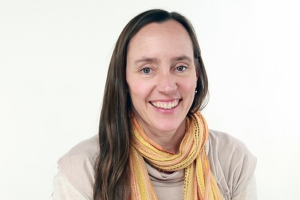Firstbridge courses are offered to degree seeking freshmen and registration is done via webform in pre-arrival checklist.
Professor(s)
Notes
This course will explore the inner and outer worlds of animals in the contemporary world, in which humans are dramatically altering natural landscapes across the globe. We will begin by exploring the evolution and diversification of the animal kingdom. What explains the marvelous variety of behavioral and morphological traits that we can see today? Why do peacocks have such colorful tails? Why do pigeons puff up and strut around after each other in the spring? How do bees find food? Why do some animals live in groups, while others live alone? Why are there so many big mammals in Africa? We will then examine how humans fit into this family tree. When did humans evolve, why do we look and act the way we do, and how did we make our way to the top of the food chain? Finally, we will address the enormous impact that humans have had on this planet since our arrival, an epoch known as the Anthropocene. What are the major threats to biodiversity, and how can we mitigate them? Where is the wildlife in our cities, and how do animals’ lives differ in urban vs. wild environments? What role do – or should – institutions like zoos and museums play in preserving Earth’s legacy?
Learning Outcomes
- Students will comprehend how information is produced and valued in order to discover, evaluate, use, and create information and knowledge effectively and ethically. In FirstBridge, students will demonstrate the conversational nature of scholarship, and recognize their potential role and responsibilities as contributors to that conversation. For each discipline taught in FirstBridge, students will identify reference works, journals, databases and/or major works in history, in order to start effective research in the field. (FB LO1)
- Students will acquire the study skills, time management, and interpersonal skills needed to meet the demands of university-level academic work at a Liberal Arts College individually or as a team. Students will value the multiple meanings of place through experiential learning at AUP and beyond in the Parisian or global context. (FB LO2)
- Students will gain an introductory knowledge of the field of animal behavior, with emphasis on how natural selection has shaped behaviors over time.
- Students will gain an introductory knowledge of anthropogenic impacts on animals and the environments in which they live.
- Students will practice applying the scientific method and behavioral theory to answer specific questions about the interaction between organisms and their environment.
- Students will think critically about cultural and social difference. Students will identify and understand power structures that determine hierarchies and inequalities relating to race, ethnicity, gender, nationhood, religion or class. (CCI LO3)
- Students will demonstrate awareness of ethical considerations relating to specific societal problems, values, or practices (historical or contemporary; global or local) and learn to articulate possible solutions to prominent challenges facing societies and institutions today so as to become engaged actors at various levels in our interconnected world. (CCI LO4)
Syllabus
Schedule
| Day | Start Time | End Time | Room |
|---|---|---|---|
Tuesday | 13:45 | 15:05 | PL-4 |
Friday | 13:45 | 15:05 | PL-4 |

